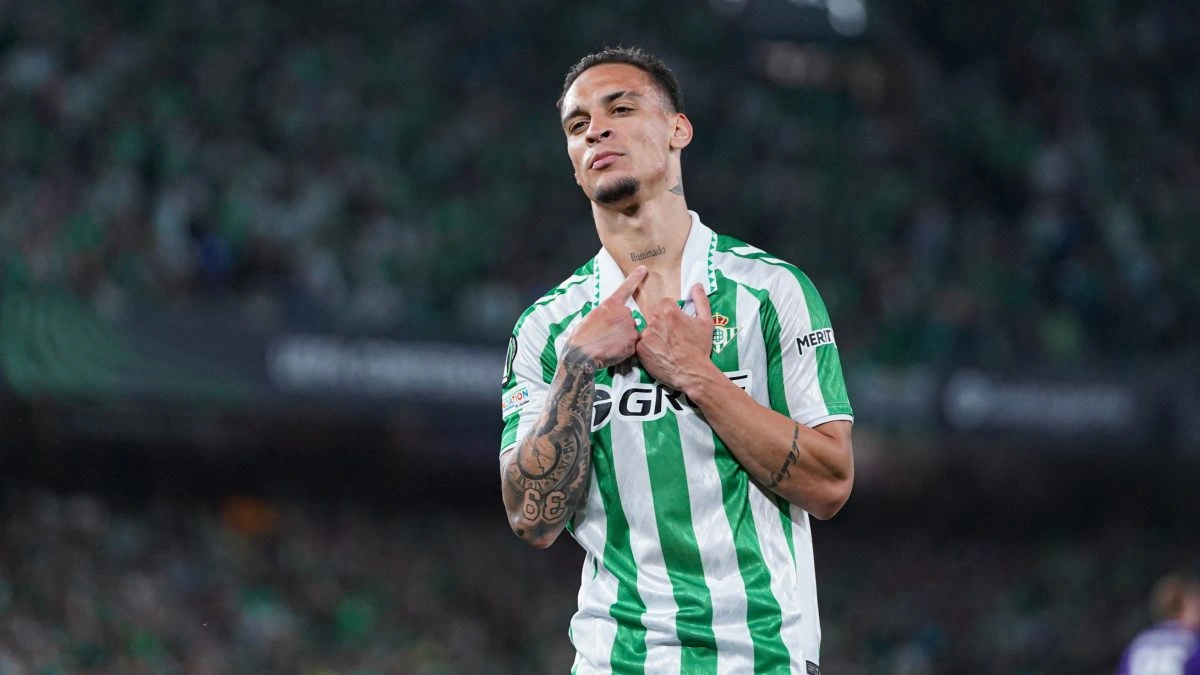
When Antony stepped onto the pitch for Real Betis with the word Iluminado etched across his neck, it was a personal marker of survival and belief. Now that tattoo has become the centerpiece of a merchandising deal that blurs the line between player and club brand.
Betis confirmed the launch of the Iluminado clothing line this month, a project born during the summer negotiations that brought Antony back to Seville on a permanent deal. The Brazilian winger accepted a wage cut to rejoin the club, but Betis offered him something rarely seen in European football: royalties from merchandise built around his own identity. As Betis CEO Ramón Alarcón put it, “We’ve launched a clothing line with Antony. We’re participating with him through royalties, and he’ll also have some income outside of sports with that merchandising.”
The opening release keeps things straightforward: a white shirt stamped with Iluminado across the front and his number seven on the back, priced at about $27. More pieces, including hoodies, are set to follow later this year. Produced in partnership with kit supplier Hummel, the line is part of Betis’s broader push into lifestyle fashion, extending beyond replica jerseys to capture everyday wear.
An enlightened strategy
The decision taps into something fans had already embraced. Last spring, during Betis’s run to the Conference League final, supporters carried banners with the word Iluminado and even painted it across their skin. To them it symbolized both Antony’s revival and the team’s own improbable surge. Turning that organic sentiment into official merchandise is merely an extension of the fandom backing it.
Among Betis supporters, there’s pride in seeing a cult hero honored in such a personal way. For some, the T-shirt may one day become a piece of club history. More broadly, it has sparked amusement and intrigue, with observers noting that Betis may have found a creative way to reward a star while staying inside LaLiga’s strict financial rules. Some see it as a glimpse of the future, where contracts might routinely include bespoke commercial ventures tied to a player’s persona.
For Betis, the shirt is more than retail. It was written into the deal that brought Antony back from Manchester United: a reduced salary offset by shared earnings from a brand already alive on terraces. If the line connects, both sides win. There are risks, of course. If Antony’s form dips or if he leaves before his deal expires in 2030, the merchandise could lose value. Yet Betis has hedged against that by anchoring the line in a concept—“enlightenment”—that resonates beyond one player. Fans are buying into an idea as much as they are into a winger’s career.
There is precedent. Footballers have long tried to turn a gesture or a mark into business, whether it was Bale’s trademark heart-hands or Lingard’s JLingz line. Few, however, have done so in direct partnership with their club. For Betis, this collaboration turns a contract clause into a cultural statement. For Antony, it transforms his neck tattoo from ink into intellectual property.
In a sport where image rights have become nearly as contested as transfer fees, Iluminado offers a case study in what comes next. Clubs are no longer just selling jerseys; they are selling stories, mottos, and marks of identity. And in Seville, one player’s tattoo has become both a business venture and a badge of belonging.